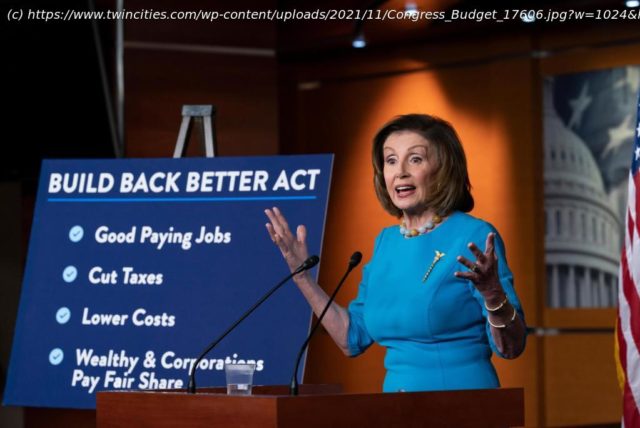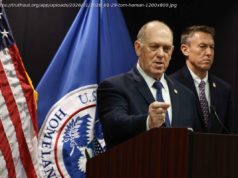WASHINGTON (AP) — A divided House moved toward passage of Democrats’ expansive social and environment bill on Thursday as new cost estimates from Congress’ top fiscal analyst sugg…
By ALAN FRAM WASHINGTON (AP) — A divided House moved toward passage of Democrats’ expansive social and environment bill on Thursday as new cost estimates from Congress’ top fiscal analyst suggested that moderate lawmakers’ worries about spending and deficits would be calmed, giving the bill the votes it needs for passage. House Speaker Nancy Pelosi, D-Calif., told lawmakers in a letter Thursday evening that the chamber would soon begin final debate on the sprawling legislation. That would put the House on the doorstep of finally approving the package, a top priority for President Joe Biden that would bolster child care assistance, create free preschool, curb seniors’ prescription drug costs and beef up efforts to slow climate change. “At the close of the debate, all that remains is to take up the vote — so that we can pass this legislation and achieve President Biden’s vision to Build Back Better!” Pelosi wrote, using Biden’s name for the measure. An initial batch of key figures released by the nonpartisan Congressional Budget Office showed that its projections were aligning closely with earlier estimates from the White House. That included tax credits to spur clean energy development, a new required paid family leave program, bolstered child care assistance and caps on seniors’ prescription drug costs. Two weeks after centrists’ objections forced Democrats to delay the measure, the bill began moving amid optimistic signs from leaders and lawmakers that their divisions were all but resolved — for now. Facing uniform Republican opposition, Democrats can lose no more than three votes to prevail in the House. The CBO was expected to estimate that the bill’s overall cost would be modestly higher than the 10-year, $1.85 trillion price tag Democrats have been citing. It was also expected to project the measure would produce deficits of perhaps $200 billion over the coming decade. Biden and other Democratic leaders have said the measure would pay for itself, largely through tax increases on the wealthy, big corporations and companies doing business abroad.






